The adventurer opens up about writing the story of Jesus as a thriller, his complicated relationship with church and why faith is like plugging in a toaster
It’s midnight in the jungle, but Bear Grylls OBE isn’t sleeping. He’s in a shack, writing through the night. “Wild horses couldn’t stop me,” he says as we chat about how those words became a novel, The Greatest Story Ever Told – a retelling of Jesus’ life, death and resurrection from multiple perspectives.
Grylls, 51, is one of the most famous adventurers in the world. The former SAS trooper and chief scout fronts some of the most-watched TV shows on the planet, including Man vs. Wild and Running Wild. Why write a book about Jesus? The short answer seems to be because he had to.
“I literally woke up one morning and knew I was going to write this thing, with utter conviction,” he tells me. “I got straight on the phone to the publishers and said: ‘It’s going to be the biggest-selling book in history.’ They laughed. I said: ‘It will! After the Bible and the Qur’an, it’s going to the biggest.’”
I have no reason to doubt Grylls’ sincerity. But the claim that The Greatest Story Ever Told is going to outsell Harry Potter, The Hobbit and every Agatha Christie whodunit ever written is hard to believe. Is it just a pipe dream? Maybe. But I’m not brave enough to tell a man who literally climbed Everest after breaking his back in three places that he can’t do something.
Whatever the final sales figures, Christians have every reason to be excited about this book. Millions of people may have no interest in reading Matthew, Mark, Luke or John, but they will pick up The Greatest Story purely because Grylls’ name is on the front. As evangelistic opportunities go, this one is colossal.
I’ll admit to being slightly intimidated by Grylls. Perhaps this is why I fail to ask the traditional ‘warm-up’ question: “What did you have for breakfast?” – normally used to test microphone levels. I feared he’d respond with tales of a 3am alarm and fighting off wild boar to forage for rare berries to put in his morning smoothie. I needn’t have worried; Bear quickly puts me at ease – even waxing lyrical about his mum’s love for Premier Christian Radio. He’s sincere, genuine and friendly. When he promises to subscribe to this magazine at the end of our time together, I believe him.
Grylls is arguably the most high-profile Christian in the UK today. This comes with unique pressures and unfair expectations, some of which – being pushed to the front of church – he admits to struggling with (he’d rather hide at the back). Grylls’ faith is quiet, but real. His recall of scripture is impressive. He’s open about his doubts and wishes more church leaders would do the same. Don’t expect him to give you neat, Christian answers that tick all your theological boxes, though. He isn’t a theologian – just a fellow traveller who loves Jesus and wants more people to know his love.
Welcome, Bear Grylls. You’re not a stranger to Premier, are you?
My mum is probably Premier Christian Radio’s greatest fan! There’s certain things I do in my life because of my mum and today is definitely one of them.
We love you guys, and you do such a great job, across so many different mediums – your podcasts, your magazines and the radio. As a collective group, you’re a powerhouse for good. You share light, love and all the good stuff.
Thank you. We’re here to talk about your latest book, The Greatest Story Ever Told. You’ve written 100 books, but you’ve said this one is special. Why is that?
I am proud of my other books, and I don’t want to belittle them, but this is different. It’s the proudest thing in my work world I’ve ever done.
I would give up everything – every summit, every Emmy – it pales into insignificance compared to this, because it’s history, it’s his-story, it’s the story of Christ, written in a way that is accessible. If I could only be remembered for one thing, this would be it.
I really want people to experience this story. Because the story changes us.
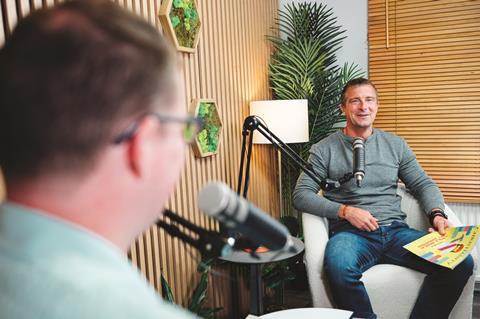
A sceptic might wonder, how does a story from 2,000 years ago affect my life today?
Jesus interacted with everyone from the elite to the lowest, most broken and the prostitute. Everyone he interacted with left changed. So, whoever you are, I think you’ll relate to it.
The fun part is I know this book is going to have an effect like nothing I’ve ever done. You do TV shows and hopefully people enjoy watching it for an hour. But this gets in people’s hearts and doesn’t let them go.
Is your book similar to The Chosen where you’re creating plausible backstories to some of the characters, but doing it in a way that’s biblically faithful and doesn’t contradict scripture?
I think it’s more than that. I think The Chosen does a great job, but they are ultimately creating scenes that didn’t happen. I wanted to be absolutely faithful so there’s no scenes which are imagined. There’s no dialogue from Jesus that’s made up. Not a single word. I haven’t changed even a comma from the New Testament.
How long did it take to write?
I wrote it in the jungle when I was filming Bear Hunt, our Netflix show. I had my son out with me. We were staying together in this lodge and I would write all night. He was like: “Dad, are you OK? Are you on something? I leave you at 11 o’clock and I come in at four and you’re still there [writing].”
[The words] just came. I’ve never had that experience before. It was incredible.
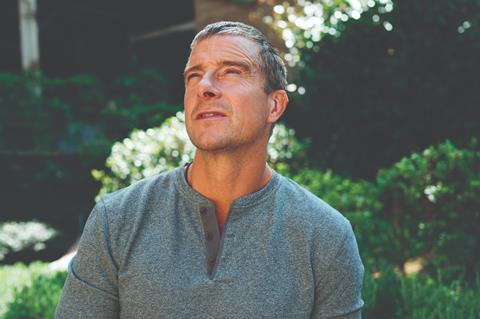
Tell me about your first memories of faith.
As a really small kid, I’d always be outside, running around, bare feet. I loved adventure. I loved climbing with my dad and swimming in the sea – and faith was wrapped up in all of that. I knew there was something out there beyond me. I could feel it.
My grandfather had a really beautiful faith. He played cricket for England and was a gentle, humble guy. I remember him always kneeling beside his bed and saying his prayers. That always struck me.
Then I went to boarding school, and that was very churchy and religious. I instantly thought: I’ve got it wrong. God is not everywhere and in us and amazing. God is in cassocks and speaks Latin and drones on too long in sermons. I couldn’t understand the language. So, I let faith go and thought it didn’t apply to my life.
The rest of my life has been an untangling of that; realising actually that little boy had it right. Faith is in your heart. Faith is beautiful. Faith is strong and empowering and hard to articulate. It’s in freedom and connection with others. You can’t pin it down. It’s not in a church.
A great church, for me, has always been a hospital rather than a theatre
I came back to it as a teenager when my godfather died suddenly. I was 15, up a tree, distraught. I cried, and I just remember saying a prayer: “I wish you were real, God. I wish you were like I knew you when I was a boy. Are you there?” It didn’t have an “amen”. It was just a heart cry. There was nothing dramatic, but I look back now and I know something happened. It was a prayer of salvation. People came into my life that became mentors, guides, friends. And the journey began.
You were 22 years old when you had a parachuting accident that could have been fatal…
I was really lucky with that. People say it’s unlucky to break your back in three places, but it could have been way worse.
It was a jump in Africa. The parachute ripped on opening. I should have deployed the reserve but didn’t have time and ended up spiralling down very, very fast. I smashed into the desert and broke my back.
I had many months in and out of military rehabilitation. I had incredible support, but it was a dark time. What was harder than just the physical pain was the mental side of: I’m not going to be able to do the level of intensity of the job again. What am I going to do?
You start small, and you cling onto simple things. My faith and my family were key. And having a goal was key. That’s why climbing Everest became a huge focus for me. I was going to get strong enough to reach the bathroom on the floor above in the rehab centre. Then one day, I’m gonna get strong enough to attempt the biggest mountain on earth. That became the whole focus of my recovery.
And just 18 months after that accident you became one of the youngest Britons to ever summit Everest.
It changed my life in so many ways. I wrote a book on what happened up there. Somebody at Discovery Channel read that, approached me and said: “Would you do a show for us where we drop you in difficult places?” I had just got married. Shara’s father died in our first year of marriage, and my dad died ten weeks later. I was out of the military and didn’t have a job as such. I was trying to figure things out and I think that was a gift from beyond. I think my dad, definitely from beyond, helped crack open that door and give me that opportunity. But at the time, I didn’t recognise it. I actually said no three times. It was just lack of confidence. I wasn’t a TV guy. I kept saying: “That’s not my thing. I can’t do that.”
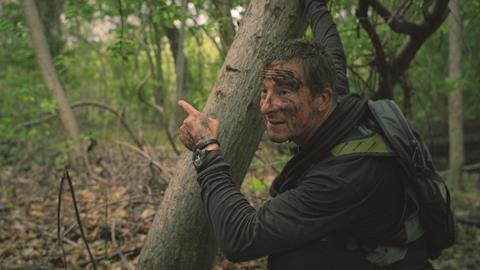
People might be surprised to learn that you’re not naturally confident in front of the camera.
In terms of TV, it’s been a love-hate relationship, really, all my career.
I love the adventure, and I love the people. I really struggle being on camera. But I’ve learned how to do it, and it’s my job.
How were you able to go from a broken back to summiting Everest? Are you uniquely gifted and talented, or could anyone make a similar recovery with the right mentality and enough hard work?
First of all, I’m really not exceptional in any way. I’ve learned a few skills over my life, but anyone can learn skills. I was never the brainiest or the sportiest at school. I’m not an exceptional person.
But there is power in having a goal and a clear focus. I know that the key to everything is having a never-give-up attitude. All the good stuff in life is on the other side of doubt, struggle, fear, pain and discomfort. You’ve got to push through that stuff. That’s the key.
How much of your work is about trying to encourage people to have more mental resilience?
It’s more than trying to encourage people. It’s trying to give people the tools to do it.
It’s like going to the gym. It’s the hard stuff that builds the physical strength. The chest press feels hard, but your muscles get stronger. It’s the same with life.
There is an epidemic of anxiety with young people at the moment, but being able to deal with difficult situations is not a God-given talent. It’s not like: Oh, he’s good at cricket. He’s good at dealing with hard times. Dealing with hard times is a muscle that has to be built, just like that bicep in the gym. How do you build it? You keep facing it. You don’t run from it. You do difficult things. You do new things. You do the awkward, the uncomfortable – little things every day. That builds our resilience.
I’ve learned not to shy away from sharing my faith
We can start by cranking the shower down to cold for 30 seconds in the morning. Or having the courage to say to a friend: “I’ve been struggling recently.” That is difficult, but you only get the connection when you go through the difficult thing. You’ve got to reach out in vulnerability.
Maybe it’s getting up a bit earlier to take the dog out for a walk. Maybe it’s the discipline of eating natural food rather than just easy rubbish stuff.
It’s doing the difficult, when the easy and the lazy is so much more convenient. If you do that long enough, it becomes a habit. People run away from it, but discipline is the key to everything.
People have said the same about prayer – just keep showing up. Build the muscle, and the more you try, the more natural it gets.
I didn’t go to church very much – actually I do go a bit more now – but my church has been a daily thing with one of my oldest friends. We read through the Bible every year, doing a little chapter every day. We’ve done it for a decade now. And sometimes it’s a real shag. I’m so busy, I’ve got to get up at five o’clock in the morning. But he keeps me accountable. If I miss a day, he checks in: “Brother, everything alright?” It’s so good, but it’s not easy.
It sounds like your early experience of church was off-putting, but you just said you’re attending church more now. Help me understand what that journey has been like.
I’ve realised that actually, the baby is beautiful. It’s the bathwater that’s a mess.
The bathwater of church is…well, you only have to open a newspaper. Churches are closing, somebody’s been done for abuse – it’s horrific. But the challenge is to see beyond that and lift the baby out the bath. The baby is beautiful. The baby is Christ, who is freedom and love and never judges.
Humility is a strength. Vulnerability is a strength
Many churches get that, and it’s amazing seeing so many churches coming to life now, and so many more young people seeking out great churches.
A great church, for me, has always been a hospital rather than a theatre. My experience was often either a theatre or in Latin. Or: Look how great we are! Or: We all speak in this nice voice, and it’s all very smiley and nice. I don’t believe church was ever meant to be like that.
Church is a community of people that need each other and help each other. Who know their need of forgiveness, and that together, we’re stronger. Keep it simple and keep it short. Maybe a beautiful bit of scripture, a song, a cup of tea and a chat…when you come across it, it’s really beautiful.
Is it difficult to attend church as a public person? Do people ask for selfies? Is that a challenge?
I find that tricky. I hate to be pushed to the front. That’s why I tend to sneak in – I like being at the back. I love that verse which says King David used to worship at the back, dressed in his ephod, which translators say was like a loin cloth! [2 Samuel 6:14].
But [unwanted attention from others] is not an excuse [for not going to church] – I don’t flatter myself. It’s more about finding good communities of like-minded people.
It was really emotional at the end of Spring Harvest – they said they wanted to pray [for me] and I said: “I can’t be on stage for this.” So, I came down, and everyone put their hands on me, and I never get that [prayer support]. There was a lot of emotion. It was beautiful. That’s church! I was so grateful for that prayer community.
In one episode of Running Wild you prayed with Barack Obama, who at that point was president of the USA. How did that come about?
That was a cool life moment.
It was high octane, a million miles an hour, and we had the secret service, helicopters, snipers along the route. He said: “Bear, this has been one of the best days of my presidency.” I said: “Are you kidding?” He replied: “No. Because I’m out of a suit. I’m out of the office. I’m not being grilled on geopolitics or what I’ve done wrong.” We’d talked about life, family, hopes and aspirations. The cameras had finished and backed off a bit. We always leave one camera running, because often those long lens conversations at the end contain the real stuff.
I hate being pushed to the front of church. I like to sneak in the back
I thought: Here’s a guy who’s got the weight of his world on his shoulders. This day has been special for him. I just spontaneously said: “Before we go, I should pray for you.” And I just prayed for strength, wisdom, help and good judgement.
It was quick and I forgot about it. But they put it in the final edit of the episode. NBC were a bit funny about it, but we got them to leave it in. And actually, it’s had a beautiful effect. When we filmed with Prime Minister Modi of India, at the end of our journey together, he said: “I saw you praying with Obama. We should pray.” So, we did.
That’s a great example of naturally sharing your faith. A lot of Christians are quite afraid of doing that.
Me too! I really am. I find it awkward and difficult, but do the difficult and we build our strength. I’ve learned to not shy away from it.
If you want to know what helps me in life, then I’ll tell you [about my faith]. I won’t sugarcoat it. I won’t say it’s all perfect. There’s struggle and many doubts. But that’s OK. This is what’s helped me and I don’t mind sharing – whether it’s with Obama or however many millions of people watching. This is a quiet part of my life that helps me in the wild and in everyday life.
You say you’ve had “many doubts” about your faith. What are they?
Is it actually real? I mean, what’s the point of dedicating your life to something if it’s not real?
John the Baptist is a huge hero of mine, first cousin to Jesus. His whole life was dedicated to paving the way. He said: “There’s one coming who is greater” [see Mark 1:7]. Yet when John is imprisoned, he sends his disciples to ask Jesus: “Are you really it?” [Matthew 11:2-3]. He’s grown up with Jesus. He knows. But yet there’s doubt. I find that reassuring, because we’re all doubters.
The danger of church is you make it all too great and shiny and together. It’s so important for vicars to just be honest. Because everyone you’re speaking to struggles with stuff. Just share it. We’re all in the same boat.
Humility is a strength. Vulnerability is a strength.
And Jesus models those things.
Totally. You’re not going to get a better example.
Where are you going to draw strength from? If you’re only going to draw it from yourself, then you’re not going to be that strong. That’s the beating heart of faith. I want to live a strong life, and therefore I want to plug into the source. A toaster is not very effective if it’s not plugged in. But plug it in and it gets red hot.
On the final page of the book you write: “May the light and love of the Almighty fill your life with truth, peace and strength. Nothing can ever steal Christ’s presence from you.” Why did you finish the book with that prayer?
These are the bits that I found really exciting and beautiful and easy to write. It’s the icing on top of the cake. I wrote that before I started the book – I knew how I wanted to finish it.
I also say at the end: “please join us in praying that this book will bring many millions to know for themselves the truth that sets us free”. It’s the proudest thing I’ve done.
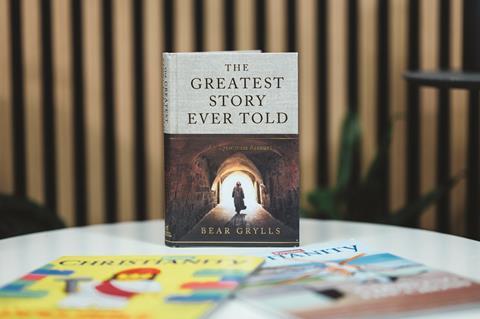
You didn’t have have to write a book about Jesus, or speak at Spring Harvest, or give an interview to a Christian magazine. But you have. Does this mean you are going in a new direction with your career?
It wasn’t a conscious decision. The truth is, I’ve just tried to follow my heart with this stuff.
I didn’t have to write the book, but I did. I couldn’t have not written it. Wild horses couldn’t have stopped me. I literally woke up one morning and knew I was going to write this thing, with utter conviction. I got straight on the phone to the publishers and said: “It’s going to be the biggest-selling book in history.” They laughed. I said: “It will. After the Bible and the Qur’an, its going to the biggest.” Nobody’s ever told the story of Jesus as a straight, linear story. Dramatised, exciting, short, punchy, accurate – but only using the words of Jesus as dialogue. There’s millions and millions of books written, but nobody’s ever done this before. It’s like I didn’t have a choice. If someone said: “But this might ruin your entire career”, I would still do it. I know the things I’m meant to be doing now.
The Greatest Story Ever Told (Hodder & Stoughton) is out now
To hear the full interview listen to Premier Christian Radio at 8pm on Saturday 5 July or download ‘The Profile’ podcast
You can also watch this interview in full on Youtube

















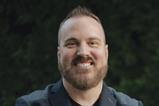





















No comments yet